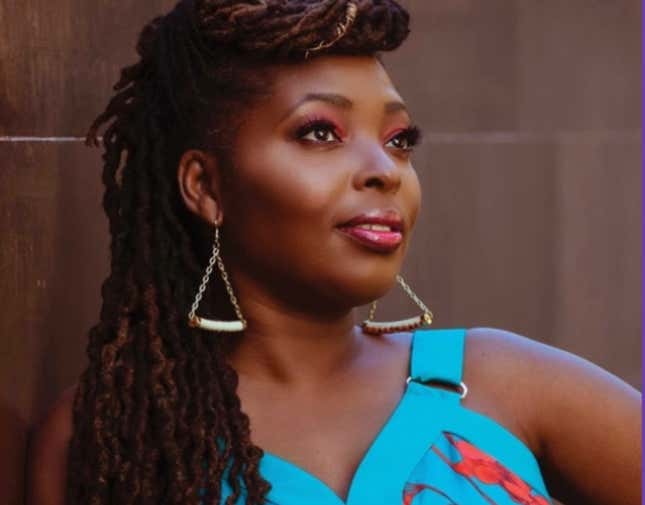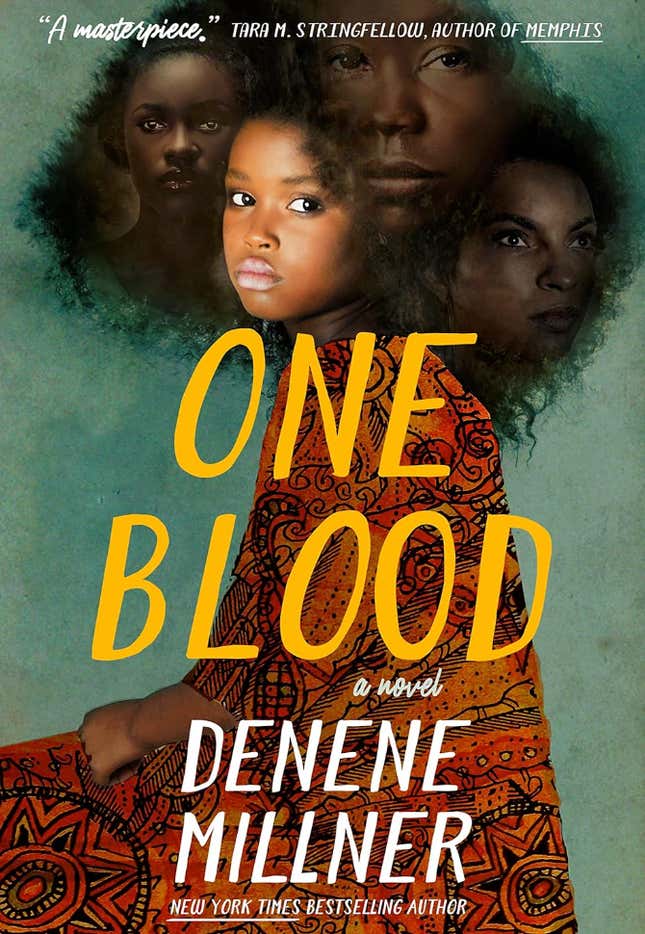
As the co-author of New York Times bestselling books, including Steve Harvey’s “Act Like a Lady, Think Like a Man” and “Straight Talk, No Chaser,” Taraji P. Henson’s “Around the Way Girl” and Cookie Johnson’s “Believing in Magic,” writer and editor Denene Millner has a knack for helping celebrities bring their stories to life.
But these days, she’s telling a story all her own. Her latest project, “One Blood,” a beautiful novel centered around three generations of Black women connected by love and family secrets, is inspired by the long-held secret of her own adoption. It’s also Millner’s first solo journey into novel writing.
I recently caught up with Denene Millner to talk about why she felt compelled to tell this story and the added pressure she says comes with creating something with your name on it.

What Happened in Tobago Turned Into a Novel
Millner said the inspiration for “One Blood” came to her nearly five years ago during a birthday girl’s trip to the Caribbean.
“I was in Tobago on my birthday with my girls. And I had this story that was burning in my belly. We were sitting on a deck overlooking the Caribbean Sea, and I just felt moved to write the first words,” she said.
At the time, Millner said she didn’t know where the story would ultimately go. She only knew she wanted to explore the topic of adoption, and specifically, her adoptive mother’s life. But after relocating to Atlanta in 2020 during the twin pandemics of COVID-19 and the racial reckoning that occurred in the wake of George Floyd’s murder, her story began to take shape.
“Within the first few days of being here, Rayshard Brooks was killed at a Wendy’s for falling asleep at the wheel. And all I could hear from my windows were helicopters swirling and sirens through the night. It was the first time I’d lived without the ‘protection’ of a man in my home. I was in charge of my two daughters, and it was scary because all I had in here was a bat,” she said. “I thought, if something goes down, how does this work? How do I protect myself, my daughters and my home? And I was up all night just scared.”
Millner said she shared her feelings with her agent, who advised her to write her way through her fear. And after reading her first 44 pages, Millner’s agent asked her to write a letter explaining why the book was so important to her and promised to sell it the next day. And she came pretty close to keeping that promise.
“She sold it to 8 different countries within a week of me writing that letter and those first 44 pages,” she laughed.
As she wrote, Millner says it was important for her to highlight the female protagonists’ strength, which is why the theme of women surviving – and thriving – without men is consistent throughout the story.
“That came directly from me being in this new house with my daughters without a man and having to source out that strength to be able to feel safe and protected in my own home by my own doing,” she said.
It’s Different When It’s Yours
Millner admits that although she’s written over thirty books throughout her career, “One Blood” will always have a special place in heart.
“[When I co-author a book,] I have to deliver what these people hired me to do. And I have to do it in a way that honors their voice and their story. It’s their baby,” she said. “I can say that my name is on the title page, but ultimately, that’s Taraji’s book, that’s Charlie Wilson’s book.”
But as she releases “One Blood” to the world, she says she feels the pressure that comes along with sharing something so personal with others.
“You have to be vulnerable and put your ideas out there for people to like or dislike. This book is mine, and I have to take the good, the bad and the ugly that comes with it.”
Millner says she hopes that by the time readers get to the last page, they’ll know how much she loves Black women, especially her mother.
“I’ve loved us with every fiber of my being from the beginning of my career when I decided to be a journalist and cover Black people, no matter what anybody had to say about it,” she said. “Everything I’ve done has been about us. And “One Blood” is really a celebration of our ability to find a way to be who we choose to be despite all of the isms (colorism, classism, sexism, capitalism) that seek to keep Black women at the bottom of the totem pole and the rest of society crawling on top of them.”

